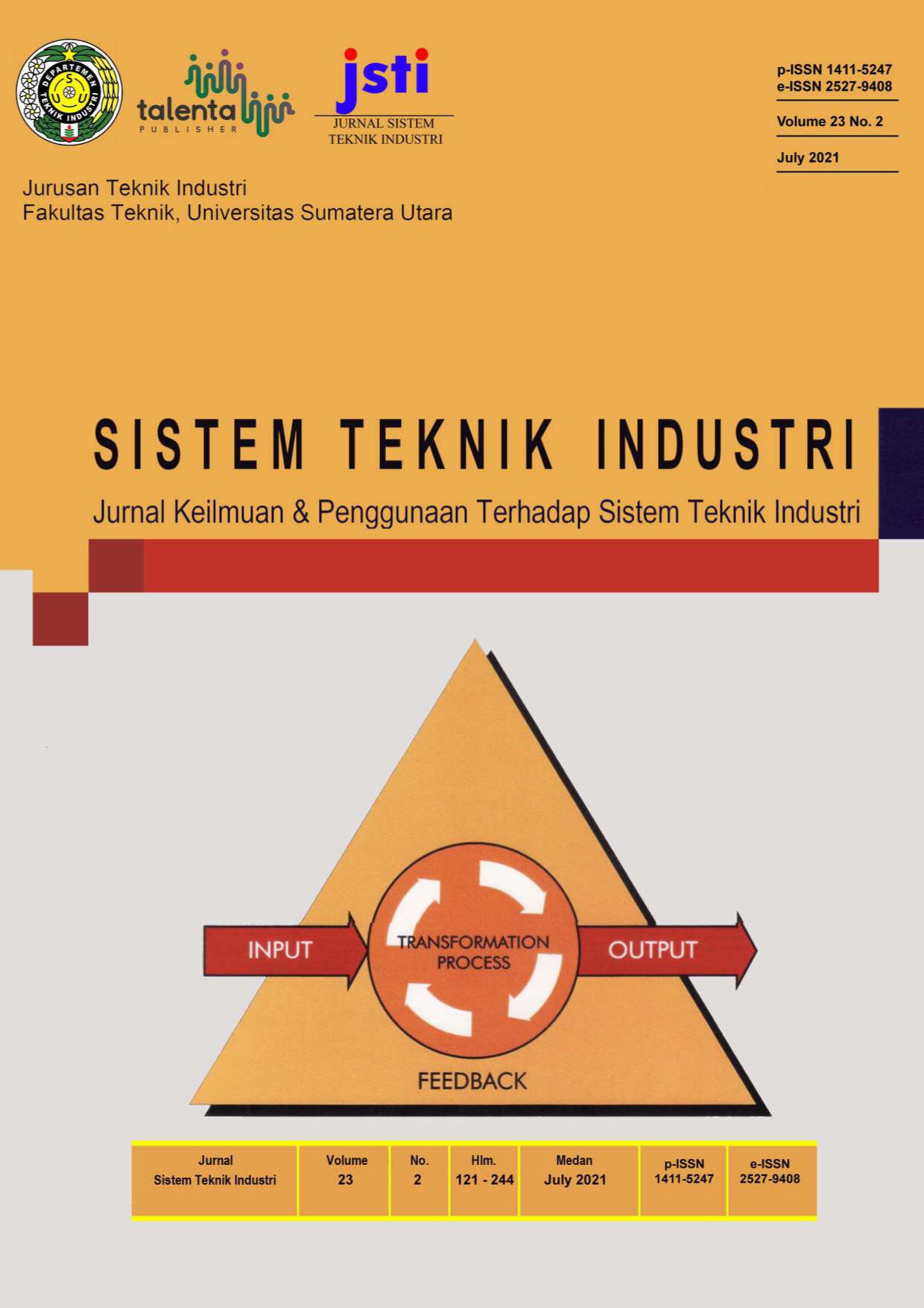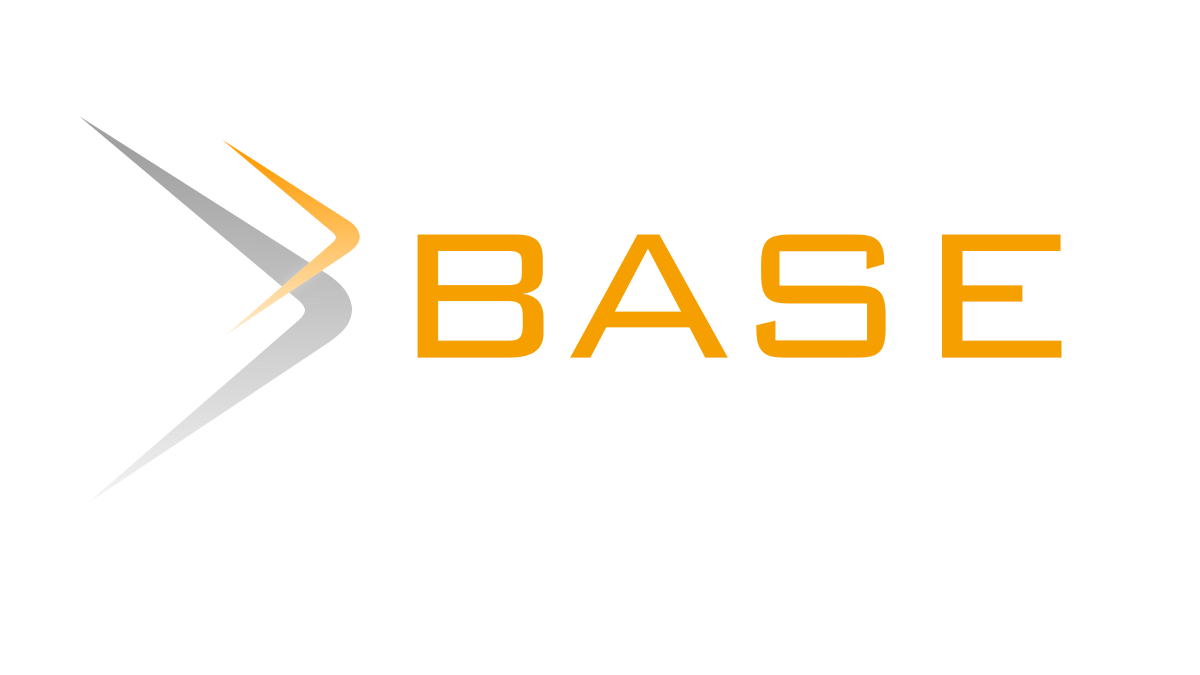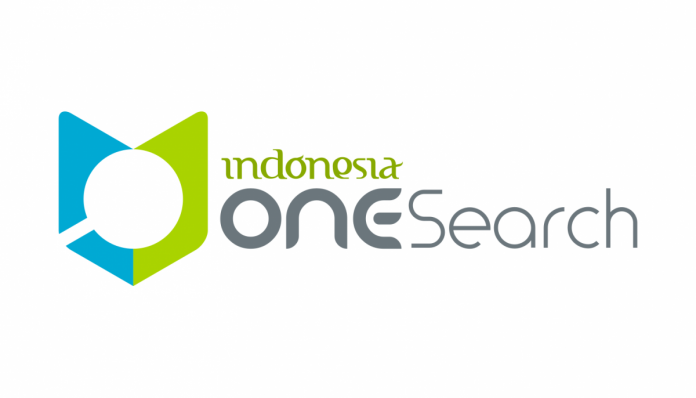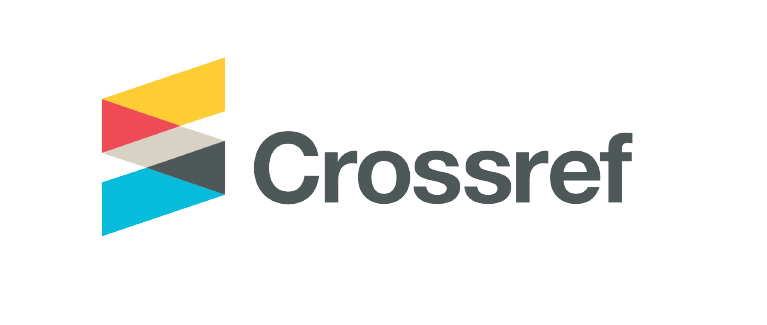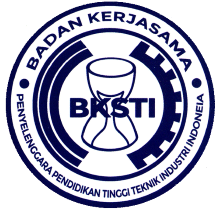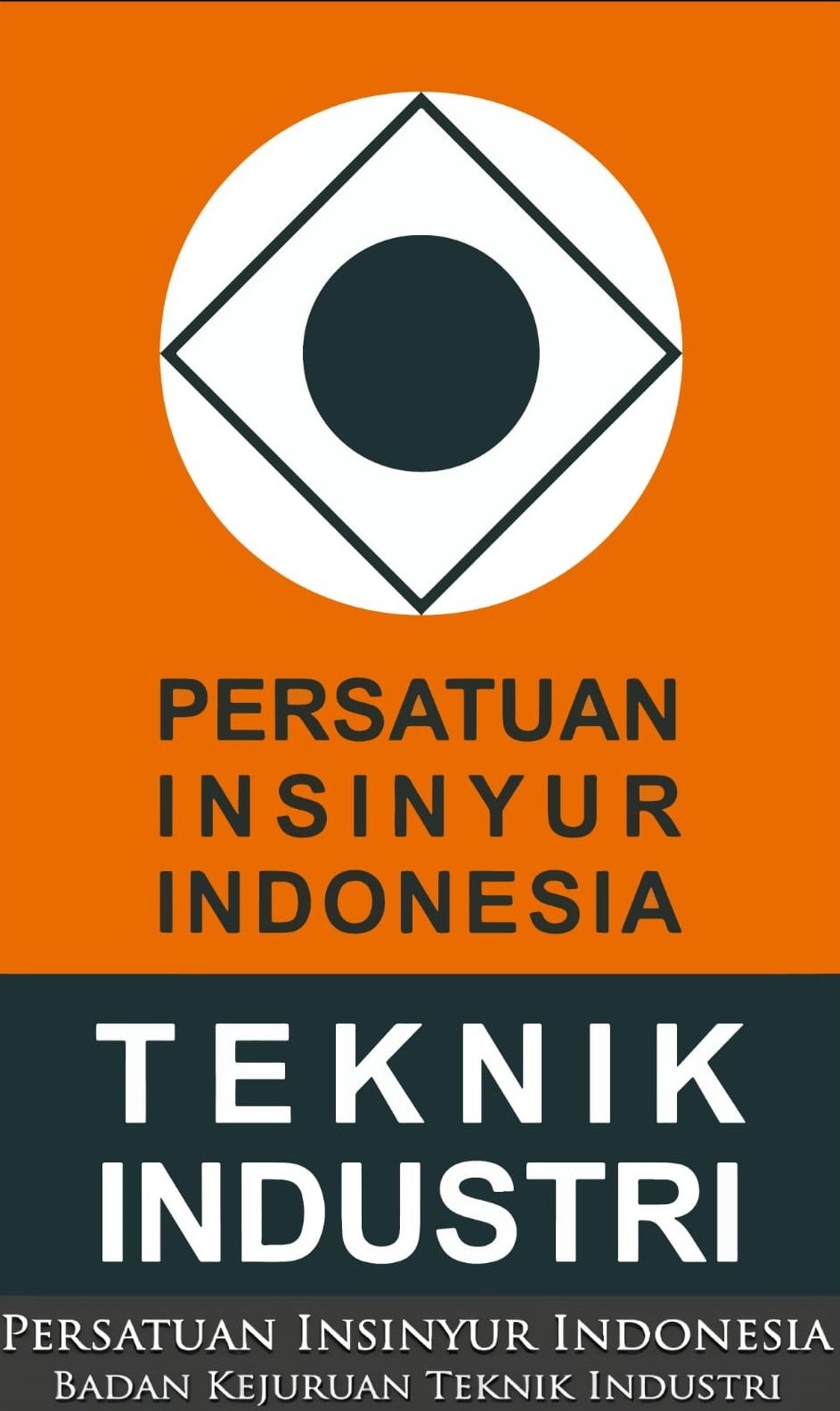Use of Modified Technology Acceptance Models to E-business for MSMEs
DOI:
https://doi.org/10.32734/jsti.v23i2.6298Keywords:
E-Business, MSME, Modified, TAM, PreliminaryAbstract
Many MSMEs in Indonesia have used e-business including, websites, social media, e-commerce, and Enterprise Requirement Planning (ERP). The aspects that need to be considered include resource management, finance, procurement, logistics, to operational activities. In addition, the challenges that must be faced by MSMEs, in external conditions, must reduce the physical distance to cope with the spread of Covid-19. Due to the outbreak, MSMEs have been compelled to employ alternative methods that must be created and implemented to keep business processes functioning. Therefore, what factors can affect the acceptance of technology that is perceived by MSME owners to adjust their business needs. This research aims to modify TAM for e-business users, especially in MSMEs, to analyze the factors affecting the technology adoption process. The research method used is to build models and indicators from previous studies. However, as discussed in model development, three external variables were added: perceived cost, perceived risk, and facilitating conditions. The next stage is to conduct empirical research using a google form for MSME owners. Based on this framework, we propose a model for research propositions and contributions to scientific studies.
Downloads
References
C. Combe, Introduction to e-Business Management, First. Burlington, 2012.
M. A. Anshar, “PENERAPAN SISTEM INFORMASI E-BUSINESS DI INDONESIA : Prospek dan Tantangan,†J. Dakwah Tabligh, 2015.
A. Fauzi and Y. Handoko, “Analisa dan Perancangan Model Umum Enterprise Architecture untuk E-Business Usaha Mikro Kecil dan Menengah (UMKM) dengan Menggunakan Framework TOGAF ADM,†J. Tata Kelola dan Kerangka Kerja Teknol. Inf., 2018, doi: 10.34010/jtk3ti.v4i1.1392.
A. Setiawan and L. H. Sulistiowati, “PENERAPAN MODIFIKASI TECHNOLOGY ACCEPTANCE MODEL (TAM) DALAM E-BUSINESS,†J. Manaj. dan Pemasar. Jasa, 2018, doi: 10.25105/jmpj.v10i2.2277.
Y. D. Handarkho, T. R. Suryanto, F. K. S. Dewi, and E. Julianto, “Penerapan Strategi E-business Untuk Meningkatkan Keunggulan Kompetitif dari Usaha Mikro Kecil Menengah di Indonesia (Studi kasus Trooper Electronic Yogyakarta),†J. Buana Inform., 2017, doi: 10.24002/jbi.v8i4.1444.
A. P. Thahir, Y. Rohayati, and A. F. Hadining, “Seaweed Dodol Of Aulia Sari Small Medium Enterprise Product Quality Improvement Using Kano Model And Product Quality Dimension Integration,†proceedings Eng., 2015.
S. S. Abed, “Social commerce adoption using TOE framework: An empirical investigation of Saudi Arabian SMEs,†Int. J. Inf. Manage., 2020, doi: 10.1016/j.ijinfomgt.2020.102118.
D. Djamaludin, A. Aviasti, and O. Rukmana, “PENINGKATAN KEMAMPUAN USAHA KECIL MENENGAH DI WILAYAH BANDUNG RAYA DALAM PEMANFAAATAN INTERNET SEBAGAI SARANA PEMASARAN DAN PERLUASAN JANGKAUAN PASAR,†ETHOS (Jurnal Penelit. dan Pengabdian), 2016, doi: 10.29313/ethos.v0i0.1682.
S. Lestari, “Analisis Usability Web ( Studi Kasus Website Umkm Binaan Bppku Kadin Kota Bandung ),†J. Ilm. Teknol. Inf. Terap., 2014.
A. F. Hadining, E. I. Sari, and K. Kusnadi, “Analisis Kategori Iklan Berbasis Facebook Ads untuk UKM,†JTERA (Jurnal Teknol. Rekayasa), 2019, doi: 10.31544/jtera.v4.i1.2019.41-46.
R. J. NAIMAH, M. W. WARDHANA, R. HARYANTO, and A. PEBRIANTO, “Penerapan Digital marketing Sebagai Strategi Pemasaran UMKM,†J. IMPACT Implement. Action, 2020, doi: 10.31961/impact.v2i2.844.
A. Kala’lembang, “Adopsi E-Commerce Dalam Mendukung Perkembangan Usaha Mikro Kecil Dan Menengah (UMKM) Di Masa Pandemi Covid-19,†Cap. J. Ekon. dan Manaj., 2020, doi: 10.25273/capital.v4i1.7358.
W. laura Hardilawati, “Strategi Bertahan UMKM di Tengah Pandemi Covid-19,†J. Akunt. dan Ekon., 2020, doi: 10.37859/jae.v10i1.1934.
S. Natanael, “PERENCANAAN BISNIS ERPIN.BIZ SEBAGAI APLIKASI ERP FINANCIAL BERBASIS CLOUD COMPUTING UNTUK USAHA MIKRO, KECIL DAN MENENGAH,†Infotech J. Technol. Inf., 2019, doi: 10.37365/it.v4i2.18.
K. S. Al-Omoush, V. Simón-Moya, and J. Sendra-GarcÃa, “The impact of social capital and collaborative knowledge creation on e-business proactiveness and organizational agility in responding to the COVID-19 crisis,†J. Innov. Knowl., 2020, DOI: 10.1016/j.jik.2020.10.002.
R. Piarna and F. Fathurohman, “ADOPSI E-COMMERCE PADA UMKM DI KOTA SUBANG MENGGUNAKAN MODEL UTAUT,†J. Ilm. Ilmu dan Teknol. Rekayasa, 2019, doi: 10.31962/jiitr.v2i1.13.
R. A. Hendrawan, E. Suryani, M. Er, M. Mudjahidin, and A. P. Aristio, “Penerapan Modul Penjualan Sistem ERP dan Pemasaran Daring pada UMKM UD. Sukri Dana Abadi dan Starlight Shop,†SEWAGATI, 2020, doi: 10.12962/j26139960.v4i1.6393.
S. Sukendro et al., “Using an extended Technology Acceptance Model to understand students’ use of e-learning during Covid-19: Indonesian sports science education context,†Heliyon, 2020, DOI: 10.1016/j.heliyon.2020.e05410.
L. Schmidthuber, D. Maresch, and M. Ginner, “Disruptive technologies and abundance in the service sector - toward a refined technology acceptance model,†Technol. Forecast. Soc. Change, 2020, DOI: 10.1016/j.techfore.2018.06.017.
W. Ben Arfi, I. Ben Nasr, T. Khvatova, and Y. Ben Zaied, “Understanding acceptance of eHealthcare by IoT natives and IoT immigrants: An integrated model of UTAUT, perceived risk, and financial cost,†Technol. Forecast. Soc. Change, 2021, DOI: 10.1016/j.techfore.2020.120437.
S. Wang, J. Wang, J. Li, J. Wang, and L. Liang, “Policy implications for promoting the adoption of electric vehicles: Do consumer’s knowledge, perceived risk and financial incentive policy matter?,†Transp. Res. Part A Policy Pract., 2018, DOI: 10.1016/j.tra.2018.08.014.
P. O. Hadi Putra and H. B. Santoso, “Contextual factors and performance impact of e-business use in Indonesian small and medium enterprises (SMEs),†Heliyon, 2020, DOI: 10.1016/j.heliyon.2020.e03568.
I. Salamah and Dkk, “Model Penerimaan Teknologi E-Commerce UMKM Kain Tenun Songket Kota Palembang,†Annu. Res. Semin., 2017.
A. Trihandayani and L. A. Abdillah, “Analisis Penerimaan Pengguna dalam Memanfaatkan Media Sosial Terhadap Usaha Kecil Menengah Menggunakan Metode Technology Acceptance Model (TAM),†Bina Darma Conf. Comput. Sci., 2019.
T. A. Kurniawan, D. K. Wardani, and L. Widhayati, “PENGARUH KEBERTERIMAAN LAYANAN PEER TO PEER LENDING KEPADA UMKM SEBAGAI PENGGUNA DENGAN MENGGUNAKAN METODE TECHNOLOGY ACCEPTANCE MODEL (TAM),†J. Sos. Ekon. DAN Hum., 2019, doi: 10.29303/jseh.v5i2.59.
P. K. Chopdar, N. Korfiatis, V. J. Sivakumar, and M. D. Lytras, “Mobile shopping apps adoption and perceived risks: A cross-country perspective utilizing the Unified Theory of Acceptance and Use of Technology,†Comput. Human Behav., 2018, DOI: 10.1016/j.chb.2018.04.017.
F. D. Davis, R. P. Bagozzi, and P. R. Warshaw, “User acceptance of computer technology: A comparison of two,†Manage. Sci., 1989.
L. Yang, Y. Bian, X. Zhao, X. Liu, and X. Yao, “Drivers’ acceptance of mobile navigation applications: An extended technology acceptance model considering drivers’ sense of direction, navigation application affinity and distraction perception,†Int. J. Hum. Comput. Stud., 2021, DOI: 10.1016/j.ijhcs.2020.102507.
B. Appiah, I. A. Kretchy, A. Yoshikawa, L. Asamoah-Akuoko, and C. R. France, “Perceptions of a mobile phone-based approach to promote medication adherence: A cross-sectional application of the technology acceptance model,†Explore. Res. Clin. Soc. Pharm., 2021, DOI: 10.1016/j.rcsop.2021.100005.
Z. Dulcic, D. Pavlic, and I. Silic, “Evaluating the Intended Use of Decision Support System (DSS) by Applying Technology Acceptance Model (TAM) in Business Organizations in Croatia,†Procedia - Soc. Behav. Sci., 2012, DOI: 10.1016/j.sbspro.2012.09.1143.
H. Rafique, A. O. Almagrabi, A. Shamim, F. Anwar, and A. K. Bashir, “Investigating the Acceptance of Mobile Library Applications with an Extended Technology Acceptance Model (TAM),†Comput. Educ., 2020, doi: 10.1016/j.compedu.2019.103732.
Downloads
Published
How to Cite
Issue
Section
License
Copyright (c) 2021 Jurnal Sistem Teknik Industri

This work is licensed under a Creative Commons Attribution-ShareAlike 4.0 International License.
The Authors submitting a manuscript do so on the understanding that if accepted for publication, the copyright of the article shall be assigned to TALENTA Publisher Universitas Sumatera Utara as the publisher of the journal.
Copyright encompasses the rights to reproduce and deliver the article in all forms and media. The reproduction of any part of this journal, its storage in databases, and its transmission by any form or medium will be allowed.

